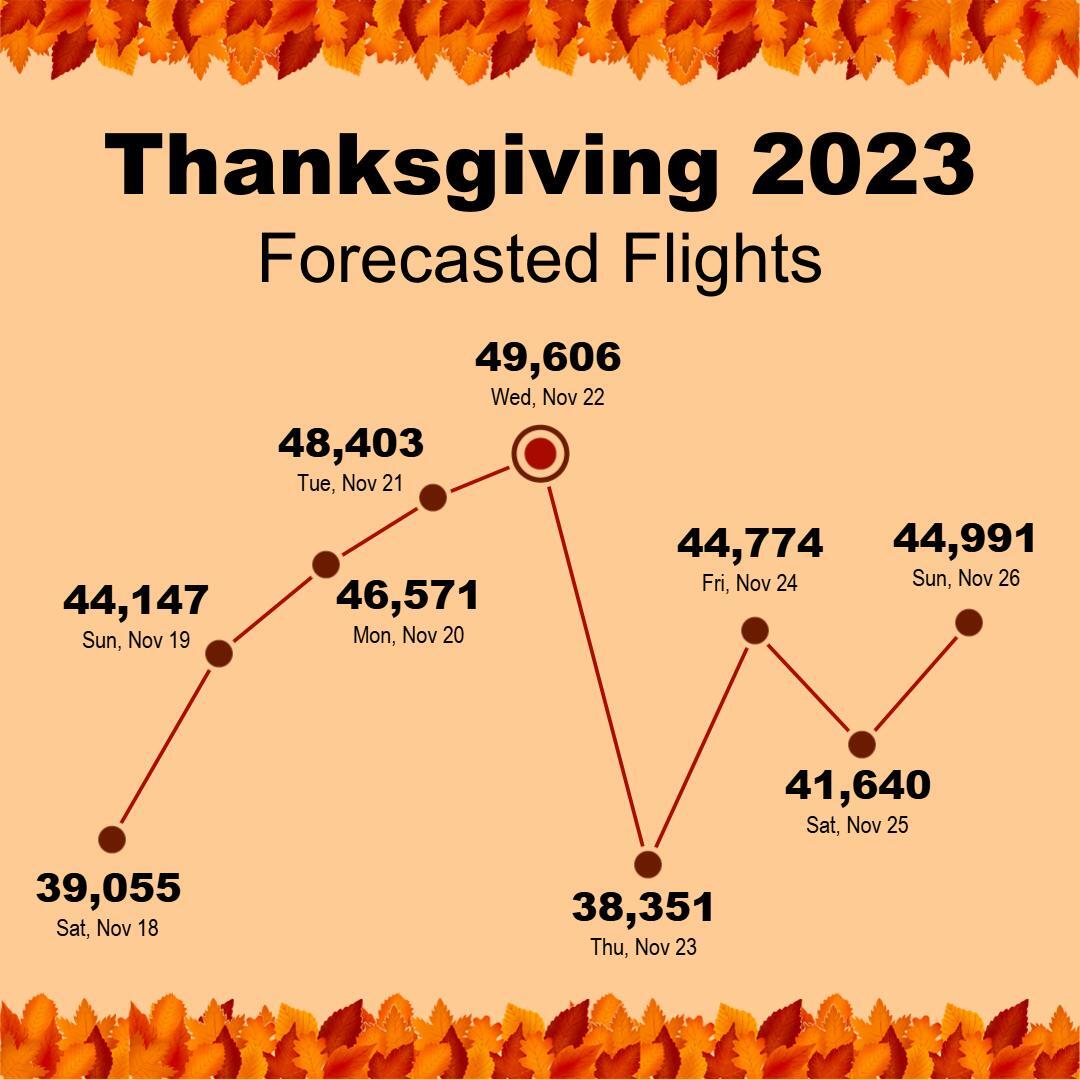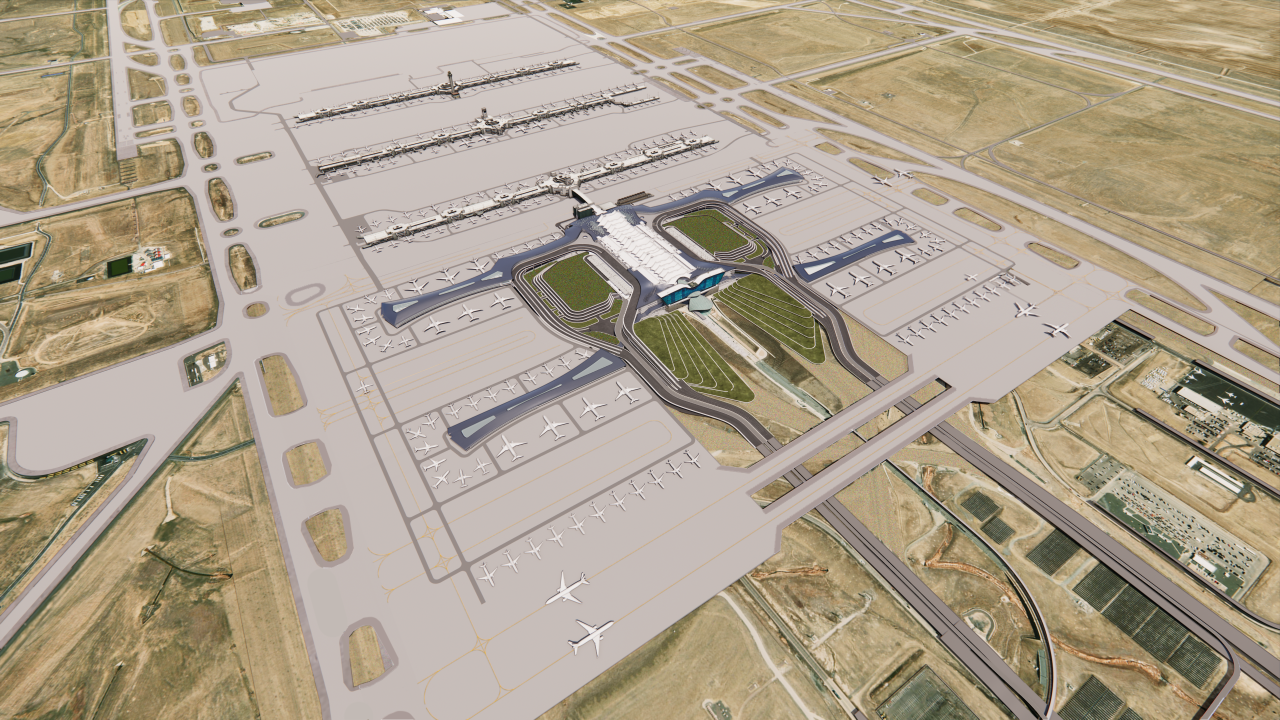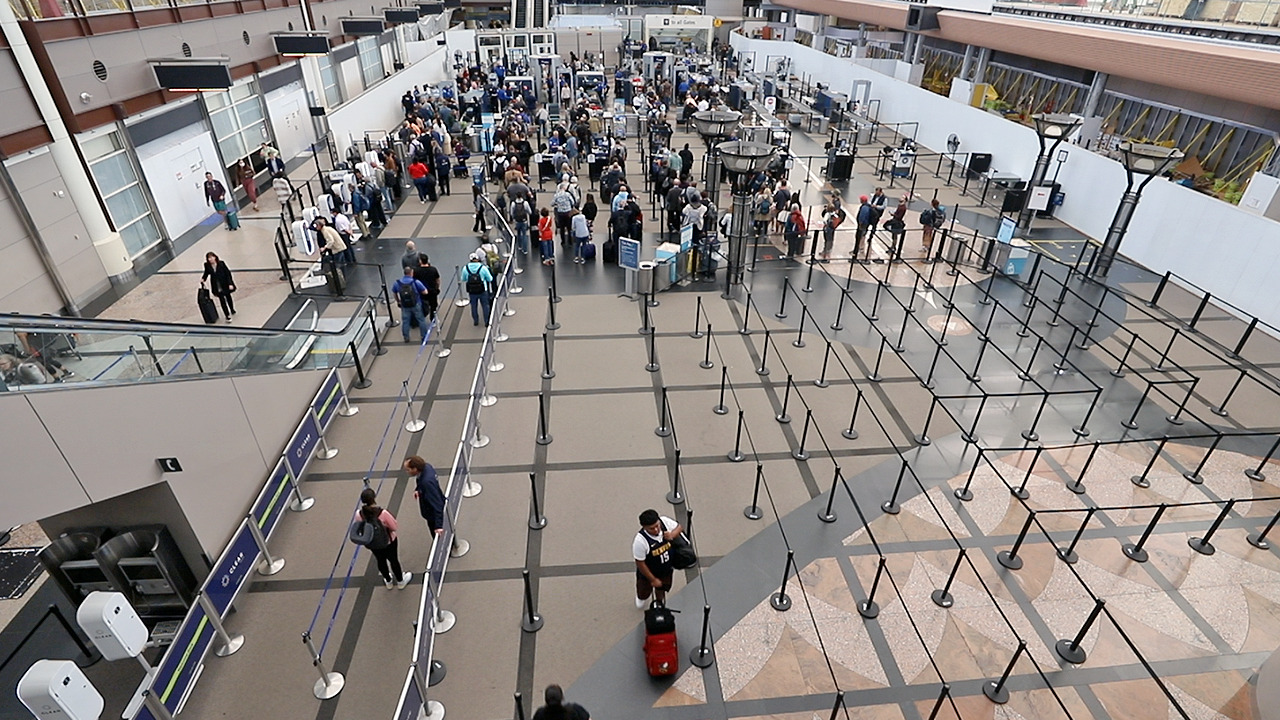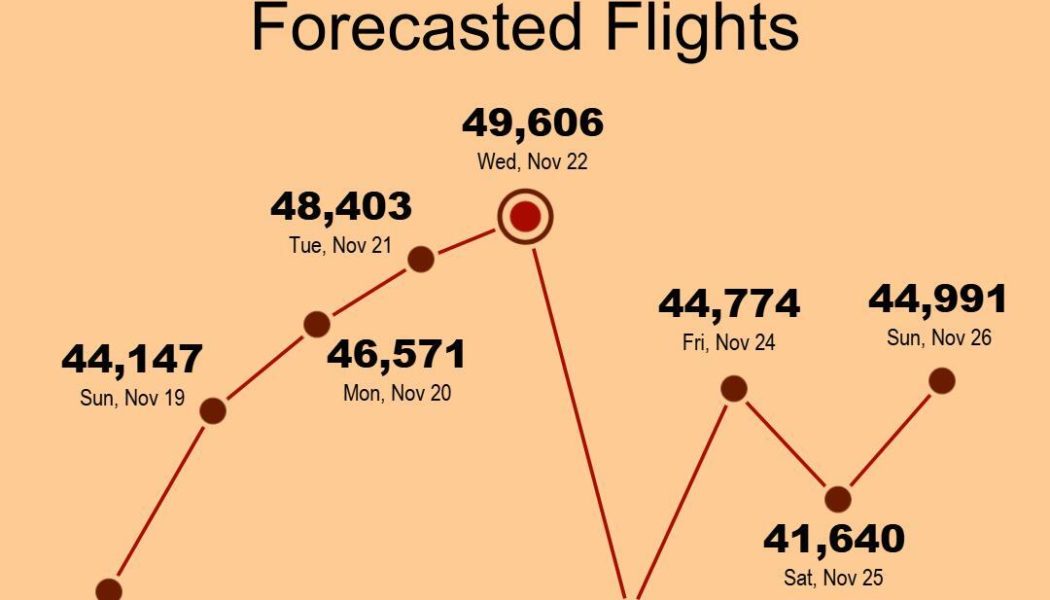DENVER — Joe Jespersen remembers what it was like flying in and out of Denver International Airport 10 years ago, describing the experience of passing through security and riding the inner terminal trains without a problem due to minimal crowds as a “well-oiled machine.” But as the hectic Thanksgiving travel week approaches, an at-capacity airport is now struggling with an ever-increasing traffic count — something he and millions of Coloradans say needed to be fixed years ago.
Lines snaking around all the way to the baggage claim area. Hundreds packed like sardines waiting for the concourse trains to arrive to take them to their gates. Bumper-to-bumper traffic on Peña Boulevard — all of these issues might be more painful in the coming days as a record number of passengers take to the skies to visit family over the Thanksgiving holiday week.
Federal Aviation Administration (FAA) officials project this coming week will break travel records across the country and here in Denver. Nationwide, there are more than 390,000 scheduled flights forecast from Saturday, Nov. 18 through Sunday, Nov. 26 — with the day before Thanksgiving being the busiest and having the most flights with 49,606 scheduled arrivals and departures nationwide.

In Denver alone, 785,000 passengers are expected to pass through TSA checkpoints at DIA over the course of those 12 days — a 13% increase from the same time period in 2022, according to airport officials.
How ugly will it get next week? DIA has the fifth longest holiday TSA lines in the U.S., according to an Upgraded Points survey. The company found that during the holiday season, DIA passengers experienced average security wait times of 9.1 minutes through standard TSA, a 21.5% increase compared to its annual average.
Jeffrey Price, a professor of aviation management at Metropolitan State University of Denver, said the only way to beat the crowds is arrive at the airport before they do.
“Everything comes down to getting to the airport early. Make no assumptions that the line is going to be short. If you get there and the line is short, then be grateful. Go through the checkpoint line, get out to the concourse, enjoy some food, enjoy some relaxation time because you probably are going to be there for a little bit,” he said.
Despite the typical Thanksgiving travel woes beyond the control of DIA, the airport’s explosive growth over the past few years appears to have taken officials and passengers alike, by surprise
So what happened? Why are we seeing record-breaking traffic counts year after year?
“This is a great state. This is a wonderful place to come and vacation, it’s kind of America’s playground for anybody who wants to do anything outdoor-related. And it is also just the unprecedented growth we’ve seen in the state overall. The FAA even does modeling on how many people live in a particular area and how much money per capita income that they make is a driver of aviation, so as the state population goes up, as the amount of money people make goes up, more people simply use aviation,” Price said.
DIA’s first flight took off on February 28, 1995, nearly two years behind schedule and $2 billion over budget. Twenty-five years later, the largest airport in North America (by total land area) has become an indispensable part of Denver and the state’s economy.
But the state-of-the-art international airport on the edge of the Great Plains didn’t take off right away. The need for a facility like DIA began showing itself as early as the 1960s, when what was then Stapleton International Airport began looking for a way to expand.
The airport was originally built to handle 50 million passengers a year, but DIA reached — and exceeded that level — in 2017.
“And now, we’re at such a breaking point that we’ve got more passengers than could even have been foreseen, that, really, the place is kind of bursting at the seams,” Price said.
Around 100 million passengers are expected to fly in and out of the airport by 2028 — projections that are about 4 years ahead of schedule, according to DIA spokeswoman Stephanie Figueroa.
“Generally speaking, we’ve adjusted our overall strategy. Now we’re seeing that projection (of 100 million passengers) is actually going to come a little sooner than we anticipated. We were looking at maybe 2032 to hit that number, now we’re looking more like 2028,” Figueroa said.
The 100-million projection — part of Vision 100, the airport’s current master plan — far exceeds what the airport can handle, but Figueroa told Denver7 planners are rushing to stay ahead of the onslaught.
“We’re looking at other things. For example, we’re updating our master plan — nothing is final yet — but there have been plans to perhaps extend concourses from the terminal,” she said. “That way, (passengers) wouldn’t have to rely on the train. But nothing is final yet.”
Those unfinalized plans include adding four new concourses that will be accessible from the main terminal, so passengers will not have to be crammed into a train to get to their gates. The proposed concourses would accommodate 100 new gates by 2045.

Speaking of those trains, DIA is looking to expand its capacity. Additionally, they are looking at alternatives to getting passengers to the B and C concourses. Figueroa said additional train cars have been ordered.
“So we do have an order out for more train cars that have unfortunately been delayed due to supply chain (issues). But those are coming, and that will add more capacity to the trains,” she said. “So as soon as those come, hopefully, there’ll be some relief in terms of waiting on the platform for the next train to come.”
Even with additional cars, the concourse trains will be unable to handle the projected passenger traffic in the coming years. But frequent flyer David Nohe said trains, planes and automobiles are not the only way to get around.
“To me, the biggest bottleneck is getting from the terminal to all the concourses. If I can fix one thing at DIA, it would be to allow people to walk in addition to just taking those trains,” Nohe said.
Airport planners are looking to do just that. A feasibility study is underway to determine if the construction of bridges connecting Concourse A to Concourses B and C is something that can be accomplished soon.
“We put out a request for information last year for that and we got a few submissions and we engaged with one of the consultants to learn a little bit more about their proposal for bridges,” Figueroa said. “So that’s what we’re looking at now. But we still are looking into costs and the feasibility of that, but that’s more than likely the direction we would take.”
However, these plans and proposals are way off in the future and passengers Denver7 talked to said something needs to be done sooner than that to alleviate the wait times and the stress that has now become routine when traveling in and out of DIA.
“I’d take a hard look at speeding up the construction, incentivizing the speed up of the construction. Prioritizing choke points — security is a significant choke point,” Jespersern said. “That’s the issue. Too little space, too much congestion, how they’re routing the passengers, and then the breakdown of the trains.”

For Jespersen, it all comes down to a construction issue, saying DIA is trying to build and modernize the airport on top of “massive, massive amounts of traffic.” The Great Hall Project has seen significant delays that Jespersen sees as one of the main causes that has created a traffic headache not just for the airport, but for those flying in and out of DIA regularly.
“I mean, we can’t be going for eight years on a construction project,” he said, as he compared the speed at which Salt Lake City International Airport has built two concourses and a central tunnel from the ground up “in the time that it’s taken DIA and Denver contractors to put in a few escalators and reroute TSA lines.”
Price argued DIA has the plans in place to move forward, and now it’s just a matter of getting the work completed as soon as possible.
“There’s the whole terminal redesign, which is part of the checkpoint redesign that’s going to help that throughput, but then you’re going to start getting backups in the train system the faster we move people through the checkpoint,” Price said. “So the next priority is getting people out to B and C concourse and then of course, expanding into additional concourses to handle the additional traffic. So the faster they can move on those projects, the better things are gonna get.”
Phase 2 of the Great Hall Project is expected to be completed by February 2024, which will bring the west security checkpoint to Level 6 — eliminating some of the security congestion.
Travelers Denver7 spoke with said DIA is on the right runway, it just needs clearance from the tower to take off.
“I believe Denver can get back there. I believe DIA can get back to greatness,” Jespersen said. “I think it will. It’s just been a long, long, long battle.”










